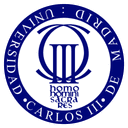This course is part of Introduction to Java Programming.
This intermediate Java programming course teaches students how to write high-quality, efficient code while applying software engineering principles. The curriculum covers debugging techniques, unit testing, code optimization, and ethical considerations in software development, preparing students for practical programming challenges.
4.2
(20 ratings)
61,698 already enrolled
Instructors:
English
English, Spanish
What you'll learn
Master debugging techniques for compile-time and runtime errors
Implement effective unit testing processes using JUnit
Optimize program efficiency and resource usage
Apply software engineering principles for better code quality
Understand and address ethical considerations in programming
Develop maintainable and reusable code
Skills you'll gain
This course includes:
PreRecorded video
Graded assignments, Exams
Access on Mobile, Tablet, Desktop
Limited Access access
Shareable certificate
Closed caption
Get a Completion Certificate
Share your certificate with prospective employers and your professional network on LinkedIn.
Created by
Provided by

Top companies offer this course to their employees
Top companies provide this course to enhance their employees' skills, ensuring they excel in handling complex projects and drive organizational success.





There are 5 modules in this course
The course provides comprehensive training in writing quality Java code, emphasizing both correctness and efficiency. Students learn essential software engineering principles, debugging techniques, and testing methodologies while developing practical programming skills. The curriculum covers error handling, optimization, and ethical considerations in software development.
Debugging
Module 1
Reasoning & Testing
Module 2
Complexity
Module 3
Software Engineering
Module 4
Ethics
Module 5
Fee Structure
Individual course purchase is not available - to enroll in this course with a certificate, you need to purchase the complete Professional Certificate Course. For enrollment and detailed fee structure, visit the following: Introduction to Java Programming
Instructors

3 Courses
Distinguished Leadership in Digital Education and Learning Innovation
Dr. Carlos Delgado Kloos serves as Full Professor of Telematics Engineering at Universidad Carlos III de Madrid, where he holds multiple leadership positions including Vice President for Strategy and Digital Education and Director of the UNESCO Chair on "Scalable Digital Education for All." His academic credentials include dual PhDs - one in Computer Science from the Technische Universität München and another in Telecommunications Engineering from the Universidad Politécnica de Madrid. His contributions to digital education include pioneering two MOOC trilogies on Introduction to Java Programming on edX that have reached nearly 500,000 registered learners. As coordinator of the eMadrid network and leader of the CertiDigital project, he drives innovation in digital education and micro-credentials. His research focuses on Technology-Enhanced Learning, with significant contributions to MOOCs, SPOCs, and learning analytics. His impact on education is evidenced through his 35-year teaching career, development of numerous digital learning initiatives, and coordination of international research projects such as MOOC-Maker, E-LANE, and SMARTLET. As the Spanish representative at IFIP's TC3 on Education and holder of the UNESCO Chair, he continues to shape the future of digital education through innovative teaching methodologies and technology integration.

3 Courses
Distinguished Leadership in Telematics Engineering and Computer Science Education
Dr. Iria Estévez-Ayres serves as Associate Professor in the Telematics Engineering Department at Universidad Carlos III de Madrid, where she has established herself as an expert in technology-enhanced learning and programming education. Her academic journey began with a Telecommunication Engineering degree from Universidad de Vigo in 2001, followed by a PhD from Universidad Carlos III de Madrid in 2007. Her research impact is evidenced by over 1,400 citations and 89 published works spanning areas such as real-time systems, concurrent programming, and educational technology. Since 2002, she has been teaching a diverse range of programming languages including assembly, scripting, Java, and C, while also contributing to courses in Systems Architecture and Concurrent Systems. Her expertise extends to real-time Java support and OSGi enhancement, demonstrating her commitment to advancing both technical innovation and educational methodologies in computer science.
Testimonials
Testimonials and success stories are a testament to the quality of this program and its impact on your career and learning journey. Be the first to help others make an informed decision by sharing your review of the course.
Frequently asked questions
Below are some of the most commonly asked questions about this course. We aim to provide clear and concise answers to help you better understand the course content, structure, and any other relevant information. If you have any additional questions or if your question is not listed here, please don't hesitate to reach out to our support team for further assistance.



